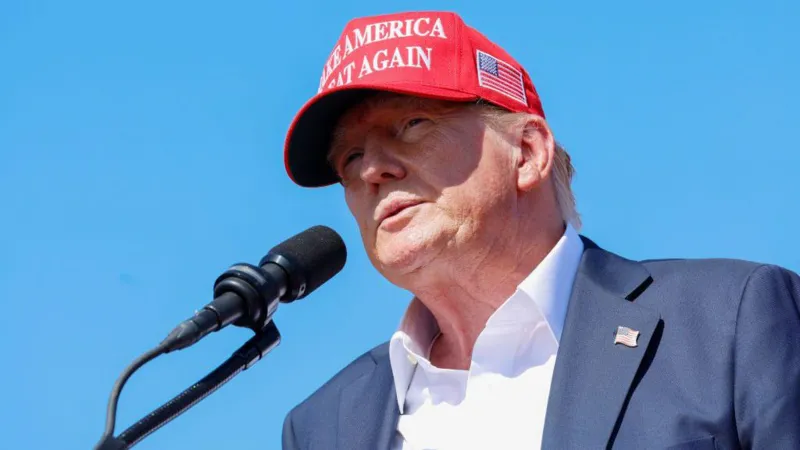The White House is considering imposing 20% tariffs on most goods imported into the United States, according to a report by The Washington Post on Tuesday. The proposal, which comes as President Donald Trump prepares to unveil sweeping new trade measures, has sparked concerns among businesses, consumers, and investors about the potential for a worsening global trade war.
For weeks, Trump has signaled that April 2 would mark what he calls "Liberation Day," when the U.S. would impose a range of tariffs to counter what he views as unfair trade practices. While he has not provided specifics, he has stated that reciprocal tariffs will be imposed on countries that levy duties on U.S. goods, and a 25% tariff on auto imports is set to take effect on April 3.
Trump is expected to announce the details of his tariff plan in a speech at the White House Rose Garden on Wednesday at 4 p.m. Eastern Time (2000 GMT). However, White House officials have indicated that no final decision has been made regarding the scope and scale of the tariffs.
According to The Washington Post, the administration is leaning toward a broad 20% increase on nearly all imported goods, rather than a more selective approach. The White House reportedly anticipates the new tariffs could generate over $6 trillion in revenue, which Trump has suggested could be distributed to Americans as a rebate.
Despite these reports, a White House aide dismissed speculation ahead of the official announcement.
Trump has already implemented tariffs on steel and aluminum imports and has raised duties on all Chinese goods, escalating tensions with key trading partners. Canada has vowed to retaliate, with Prime Minister Mark Carney stating that his country "will not disadvantage Canadian producers and workers" compared to their American counterparts. A growing "Buy Canadian" movement is reportedly making it harder for U.S. products to reach Canadian consumers.
Other nations have also warned of countermeasures, raising fears of an all-out trade war.
Trump argues that decades of free trade policies have harmed American workers, leading to a $1.2 trillion trade deficit. However, economists warn that his aggressive tariff strategy could backfire, increasing costs for American households and businesses. A study by the Yale University Budget Lab estimates that the proposed tariffs would cost the average U.S. household at least $3,400 per year.
The uncertainty surrounding Trump's trade policies has already taken a toll on the U.S. economy. Consumer and business confidence surveys show growing concerns that tariffs could drive up inflation and slow economic growth. Investors have responded by aggressively selling stocks, with $5 trillion wiped off U.S. markets since mid-February.
Globally, factories from Japan to the U.K. have reported declining activity in anticipation of Trump's tariffs, though some have experienced a short-term boost as businesses rush to ship goods before the new measures take effect.
Economists warn that this boost will be short-lived. "It won't be long before U.S. tariffs turn from being a tailwind to being a drag," said Julian Evans-Pritchard of Capital Economics.






